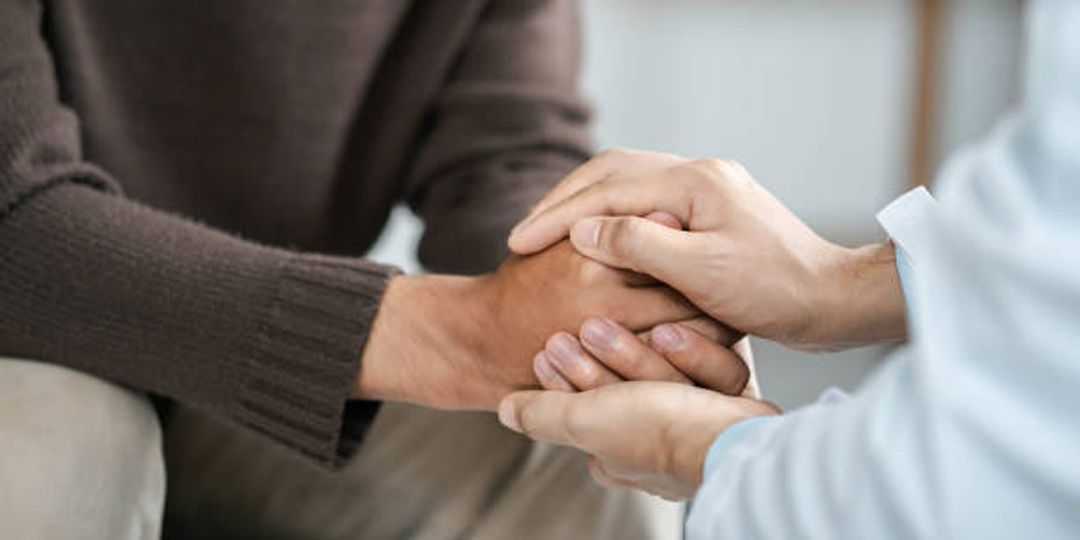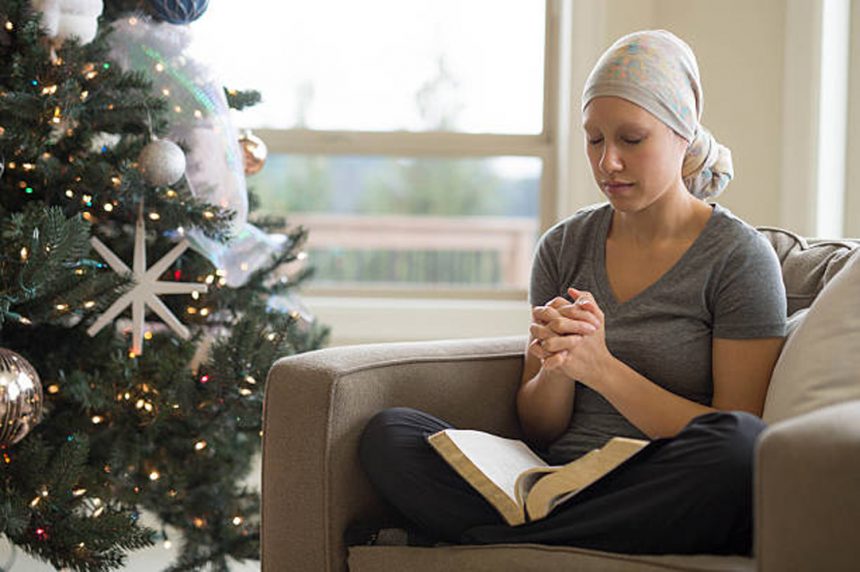After depression, Christine noticed herself, an agnostic, requesting for a sign from God. “I have to know that I’m not alone,” she pleads. “Is anybody there?” At the time, she was sitting at the desk of her second floor office. Unexpectedly, something at the window wedged her eye. It was actually a sovereign butterfly with black and orange wings glowing phosphorescently in the morning sun. It flapped at her window for some time and then flew away.
“I thought to take that as positive vibe,” says Christine. “I didn’t believe for a minute that it was a coincidence. In the 9 years I’ve been in that office, that was the first and last butterfly I ever saw at my window.”
And that was the last day Christine suffered from depression.
“Wired for God”
What years of treatment and antidepressants couldn’t heal, belief or faith did.
Christine’s sudden recovery have been sneered at by doctors as just another appearance of her psychosis. But today, they’re more likely to take notice. That’s because solid medical research has uncovered one of the greatest healing miracles of all time in what is both the most unlikely and likely of places: church.
Christine’s cure would come as no surprise to Harold G. Koenig, M.D., director of the Duke University Center for the Study of Religion, Spirituality; and Health in Durham, North Carolina, and author of The Healing Power of Faith. In his study of 87 extremely depressed women and men conducted at Duke University Medical Center, he discovered that those who put religiousness at the center of their lives improved 70 percent earlier than those who didn’t. And the more spiritually centered an individual was, the faster he or she healed.
A second study, involving 1 ,700 people over the age of 65, compared immune system factors in those who attended religious services with those who didn’t. Dr. Koenig found that those who went to services even just once a month had significantly stronger immune systems.
Twenty years ago. Dr. Koenig couldn’t pay scientific audiences to listen to him talk about connections between spirituality and health. But today, he’s in such demand as a speaker that he shuttles from coast to coast with barely enough time to change his shirt. “For many years, scientists thought spirituality was something only neurotic people pursued.” Dr. Koenig explains. “But now we’re finding evidence that maybe spirituality is part of what it is to be human, and that it may work together with our individual psychology to indirectly affect our health.”
In fact, Herbert Benson, associate professor of medicine at Harvard Medical School and president of the Mind/Body Medical Institute at New England Deaconess Hospital in Boston, recommends that because faith plays such an influential role in health, it makes sense that humans must be “wired for God”: genetically programmed to believe, if not in a being called God, at least in a power greater than ourselves. In his work identifying the stress-reducing “relaxation response,” he discovered that people who meditate are healthy, but those who experience spirituality as a result are healthier.
Why Faith Helps

The evidence that spirituality heals is impressive. More than 300 studies have found that people of faith are healthier than nonbelievers and less likely to die prematurely from any cause. Having faith can also speed recovery from physical and mental illness, surgery, and addiction.
There are a host of reasons why, say Dale A. Matthews, M.D., associate professor of medicine at Georgetown University School of Medicine in Washington, D.C., and author of The Faith Factor: Proof of the Healing Power of Prayer. Among them are the following items.
- The body responds positively to faith. People who regularly practice their religious beliefs have healthier results on tests of their blood pressures, breathing, pulses, and immune systems than people who don’t, Dr. Matthews says.
- Faith produces a peaceful state of mind and hopefulness. Such an outlook can reduce stress, anxiety, and depression.
- Religious people tend to take better care of them. They are less likely to drink and smoke, and they’re more likely to take their medicines and wear seat belts than non-religious people, notes Dr. Matthews.
- Being enmeshed in a faith community is healthy. Numerous studies have shown the healing power of social ties. For many people, the church, temple, or mosque is “family,” the place where they feel a sense of connection, meaning, and purpose, says Dr. Matthews. “They’re surrounded by people who share the same beliefs they do, people who call them when they don’t attend worship, visit them when they’re in the hospital, and even bake them cookies and casseroles when they return home.”
An Ecumenical Effect
Obviously, church isn’t the only route to physical well-being. People with no religious beliefs whatsoever can stay healthy by meditating, exercising, having a positive attitude, taking care of themselves, and having friends. Dr. Matthews maintains, however, that religion is more powerful because it combines the basics of a healthy lifestyle with something greater: faith in the helping hand of God.
Most of the studies on the healing power of faith thus far have examined Christians, but that doesn’t mean Christians are the only ones who can enjoy the fruits of spiritual belief “It’s likely that the effects also apply to Muslims, Jews, and others of monotheistic faiths,” says Dr. Koenig. “The only reason I wouldn’t say it applies to still other religions is that we just don’t have enough data yet.”
But Dr. Benson, who feels he has seen enough data, says firmly, “It does not matter which God you worship, or which theology you adopt. Spiritual life, in general, is very healthy.”
Ruth Baker is living, healthy proof. A 51 year old teacher, Ruth has suffered from a chronic pain condition for much of her life. In fact, says Ruth, she would still suffer from it if she did not practice zazen, a Buddhist meditation in which she contemplates the meaning of a koan (word puzzle) for an hour every day.
“I sit down in a room by myself for 45 minutes every morning and work on the koan,” she says. “I repeat it silently to myself as I slowly breathe in, then exhale. It interrupts my ordinary interior dialogue, so that I stop habitual patterns of thinking and become one with the moment. Afterward, I walk around the room for another 15 minutes, still contemplating the koan. By the time I’m finished, my emotional pitch has dropped. I become much quieter inside, which allows me to become more relaxed and accepting of my pain. And that allows the pain to diminish.”
Cultivating Your Connection

You can’t suddenly “have faith” simply to prolong your life or help you recover from an illness. Being religious or spiritual isn’t a good health habit such as eating more vegetables, lacing up your running shoes, or even meditating. Research shows that one of the key ingredients is that your desire to develop spiritually “comes from the heart,” says Dave Larson, M.D., a former National Institutes of Health researcher who now heads the privately funded National Institute for Healthcare Research.
Just going through the motions doesn’t do it, agrees Dr. Koenig. The guy who goes to church to network and make business contacts or the woman who joins a neighborhood prayer circle just to meet the right people probably won’t achieve health and longevity through the experience. There’s even some evidence to show that using religion in this way is actually associated with worse mental health.
But if you’re drawn to spirituality, or would like to further develop your own faith, here are a few suggestions for making it a part of your life.
Give faith a chance
If you’re only in your place of worship for weddings and funerals or if your previous religious experience wasn’t satisfying, you may wonder how to get spirituality into your life. Keep an open mind, says Dr. Koenig. “I’m not suggesting that people go to church or turn to religion. I’m just suggesting that you be open to the notion of religion and spirituality. Ask yourself, ‘Have I really given spirituality a chance?’ Even if you’ve dismissed it before, be open to the role that spirituality or God might play in your life.” Your quest is likely to draw you to a religion or spiritual community where you do feel comfortable.
Say a little prayer
“The easiest way to begin is often with a centering prayer or the relaxation response form of prayer,” says Dr. Matthews.
Read the good word
Pick a reading from your own religious tradition or one that appeals to you and read it every day for 15 to 20 minutes, suggests Dr. Matthews. “I’ve found early morning is best because it allows me to prepare for the day by grounding myself in God and finding sustenance to help buffer life’s stresses.”
Join a spiritual community
“Attend worship services on a regular basis and get involved with small groups within a spiritual community,” says Dr. Matthews. Join the community’s women’s or men’s group, choir, urban outreach mission, or soup kitchen. Continual involvement is likely to mean continual benefit.
Get in touch with your religious roots
Most religions have their own healing traditions ceremonies, prayers, and rituals that offer comfort and hope to the sick and distressed. Recovering some of these past traditions can bring you untold benefits, as Rabbi Simkha Weintraub, rabbinic director of the National Center for Jewish Healing in New York City can attest. “Jews today are just beginning to recover the old prayers, meditations, and rituals that didn’t originally come to light as part of the bare-bones Judaism that survived major disruptions such as the Holocaust.”
A tradition that Rabbi Weintraub finds healing is one in which a spiritual community organizes a group of people a Hevrah to recite the book of Psalnis (Tehillim) when someone is seriously ill. For example, when another rabbi’s wife had breast cancer not too long ago, his congregation organized a Hevrah Tehillim every day while she was being treated. They also prepared meals for the family; car pooled the kids, and generally helped out. “The congregation deepened itself in a profound way,” says Rabbi Weintraub. “And the Hevrah Tehillim provided great support for everyone.”







